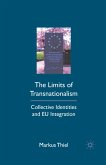Dieser Download kann aus rechtlichen Gründen nur mit Rechnungsadresse in A, B, BG, CY, CZ, D, DK, EW, E, FIN, F, GR, HR, H, IRL, I, LT, L, LR, M, NL, PL, P, R, S, SLO, SK ausgeliefert werden.
Hinweis: Dieser Artikel kann nur an eine deutsche Lieferadresse ausgeliefert werden.
- Janusz Bugajski, Center for Strategic and International Studies
"This volume contributes to understanding several intertwined aspects of post-communist developments in East Europe. Disdaining stereotypes, Fisher explores in depth the instrumental nationalism of the ruling elites of these two states and the political culture of the populations that, for a time, supported them. A dynamic analysis, this work explores both how nationalists came to power and how they lost it. Throughout, Fisher utilizes an effective comparative focus and shows a keen assessment of the relative power of domestic and international factors. This is a comprehensive, first-rate study."
- Ronald H. Linden, Professor of Political Science, University of Pittsburgh
"This is a clear and illuminating comparative study of two 'laggards' of the democratic transition who eventually overcame the temptation of authoritarian nationalism. Through a remarkable analysis of Slovakia and Croatia, Sharon Fisher makes a point of broader significance, suggesting that the dilemma between 'Nationalists' and 'Europeanists' represented two phases (two faces) of the post-communist change in much of East-Central Europe." - Jacques Rupnik, Fondation Nationale des Sciences Politiques, Paris









